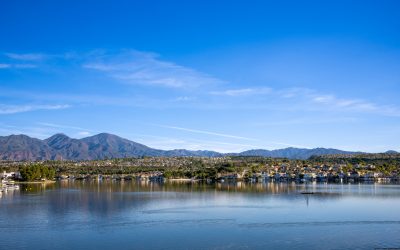U.S. Rep. David Valadao (R-CA) led the California Republican Delegation in arguing that a state Bureau of Reclamation draft Environmental Impact Statement (EIS) inappropriately prioritizes environmental goals at the expense of municipal and agricultural water needs.
“Unfortunately, the current proposed operational approach makes delivering water for consumptive uses, including irrigation, subordinate to the use of water for the protection, restoration, and enhancement of protected fish species in the Delta,” the lawmakers wrote in a Sept. 4 letter sent to regional directors of the Reclamation Bureau, U.S. Fish and Wildlife Service (USFWS), and NOAA Fisheries.
The draft EIS, released by Reclamation on July 26, along with USFWS and National Marine Fisheries Service’s (NMFS) draft biological opinions, is for the Long-Term Operation of the Central Valley Project (CVP) and State Water Project (SWP), which were authorized for multiple purposes, including delivering water for consumptive uses like irrigation and drinking.
The EIS is a federal document prepared under the National Environmental Policy Act, and considers revised operations of dams, power plants, and related facilities of the CVP and SWP.
“Neither state nor federal law makes the delivery of water for consumptive uses subordinate to environmental uses,” wrote Rep. Valadao and his 11 GOP colleagues, who included U.S. Reps. Ken Calvert (R-CA), Jay Obernolte (R-CA), and Young Kim (R-CA).
The members urged Reclamation, USFWS, and NMFS to reconsider the proposed operations and associated biological opinions to ensure that the regulatory framework balances the needs of all stakeholders, including municipal and agricultural water users.
They noted that it’s disappointing that the federal agencies are not engaging all stakeholders, including those required by law, to develop biological opinions based on the best available science and data that strike the appropriate balance between environmental protection requirements and the honoring of contractual obligations for consumptive water supplies, according to their letter.
“It is crucial to adhere to the statutory and contractual obligations to optimize water deliveries and guard against conditions of shortage while protecting the environment,” the lawmakers wrote.
Reclamation is taking comments from the public on the proposed plan, which are due by Sept. 9.



